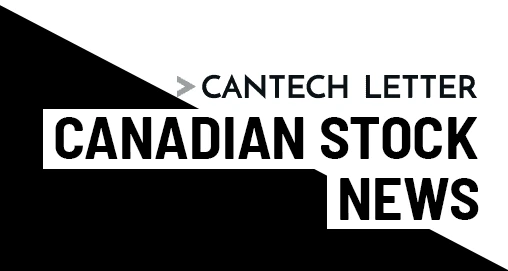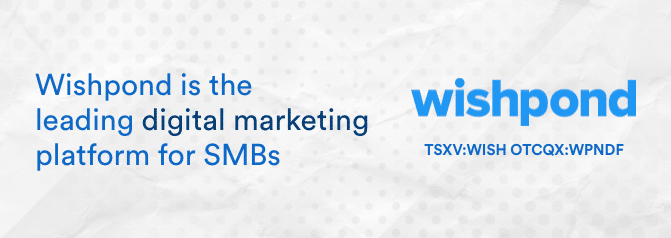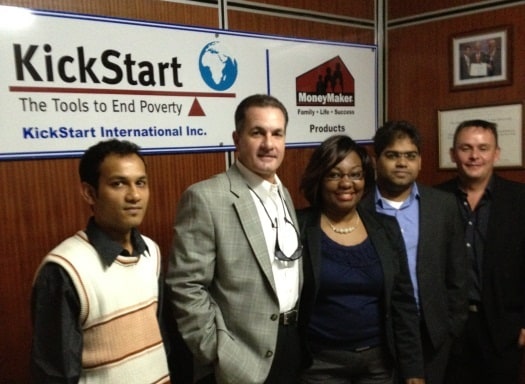
5 Questions with Serenic President and CEO Randy Keith
DVC: (from John in Hull)
Serenic makes money by selling software to non-profit groups. Is
this really a growth area? Doesn’t non-profit mean that these groups
have little or no money to spend?
Randy Keith:
That is actually one of the lingering misconceptions that has caused
this market segment to have been neglected by the legacy or
“mainstream” software vendors. In normal economic conditions,
no-profits are generally very well funded from a variety of sources
including private contributions, grants and endowments, and through
various government agencies.
Non Profits and Non Governmental Organizations, (NGOs), as they are
generally referred to outside of the U.S., represent one of, if not
the fastest growing segment for financial management software
applications. There are currently over a million non profits in
North America and nearly that many beyond our boundaries.
And, while many of them are very small, a significant number of
these organizations are of sufficient size and complexity to
implement a Serenic solution.
DVC: (from Paul in Waterloo)
I’m a potential client. How will your software improve my bottom
line next year?
Randy Keith:
Non profits are not generally concerned over the “bottom line” as in
the commercial world. Their challenges generally revolve around a
couple of critical issues.
1. Effective and transparent accountability and reporting. This
means not only being able to accommodate the nuance involved in non
profit accounting, it means being able to provide the government and
their donor community with the information necessary to retain
their tax exempt status and to assure their donor constituency that
their dollars are being managed and dispersed properly.
2. Satisfying their mission. The primary reason most people form or
join non profits is to satisfy some humanitarian need in their
community or in the world at large. Serenic assists in this
endeavor by helping these organizations operate more efficiently
thus enabling them to devote more of their precious resources to
their work.
DVC: (from Dan is Mississauga)
You have had all sorts of awards recently -Deloitte and Touche
named you as part of their “Fast 500” -the fastest growing tech
companies in North America, they also named you as one of the fastest
growing tech companies in Canada-now that Serenic has matured
somewhat, can you keep up the top line growth?
Randy Keith:
Over the past couple of years, we have indeed invested a lot of resources to position us for sustainable growth. And, while it is virtually impossible to predict near term growth rates given the current state of global affairs, we remain very optimistic about our prospects, particularly in the international markets where we are successfully expanding our operations and where we foresee very good growth opportunity for the future. One of our core objectives is to remain focused on what we do best and maintain the resources necessary to ensure our long term health and vitality.
DVC: (from Arnold in Estevan)
Which award the company has received means the most to you?
Randy Keith:
It’s hard to single out just one, but I think one of the recent
awards that had the most impact is being named Microsoft’s ISV of
the Year in 2007. Not only is this a distinct badge of honor within the Microsoft partner community, it helped expose Serenic to a lot
of people, inside and outside of Microsoft, who might otherwise not have come to know who we are.
DVC: (from Matt in Seattle)
After generally being a profitable company, Serenic has posted some
losses recently. Can you shed some light on whether these were planned
or unexpected and whether Serenic is in good enough shape to withstand
a prolonged downturn in the economy?
Randy Keith:
We actually spotted this trend back in late summer and started
making adjustments to remain strong during a downturn. That said, I
nor anyone I know could have predicted the ultimate severity of
this downturn in the economy and the global markets. However, we
have a strong balance sheet, virtually no debt, and will continue
to make adjustments as they are required to remain a vital company
and poised to take advantage of the recovery when it comes.
DVC: (from Jason in Vancouver)
Many investors like to pick individual stocks to find value, but
they also like to invest in sectors and industries they think will
grow. For the investor that is comfortable with the valuation of your
stock, do you see industry trends that will help put the wind at your
back?
Randy Keith:
All one really has to do is watch other vendors scramble to try and
introduce themselves into our markets. There is a reason for this,
no matter the market, and that is they see the activity occurring in
our segment and finally consider it worthy of their attention.
Disclaimer:
All principals of Dollarton Venture Capital own Serenic stock. In addition, on Feb. 13, 2008 Serenic engaged Dollarton Venture Capital to provide investor relations services.
During the 12-month term of the agreement, Dollarton will be compensated with a monthly retainer fee of $6,000 (six thousand dollars) and 180,000 (one hundred and eighty thousand) options to purchase Serenic shares. The options will have an exercise price of $0.55 with a 15-month term expiring May 15, 2009, and shall vest in equal amounts on May 15th, 2008, August 15th, 2008, November 15th, 2008, and February 15th, 2009. Shares acquired on exercise shall be subject to a 4 month hold period.
Comment
Leave a Reply
You must be logged in to post a comment.






 Share
Share Tweet
Tweet Share
Share




Great Article. I really like the ‘5 Questions’ segment as it provides a nice high level overview of these companies. It is nice to know the stories behind the companies and what they are doing. These types of articles give potential investors an insight into the companies that the raw data simply can’t tell you. Keep up the good work!
I agree – nice job Nick!